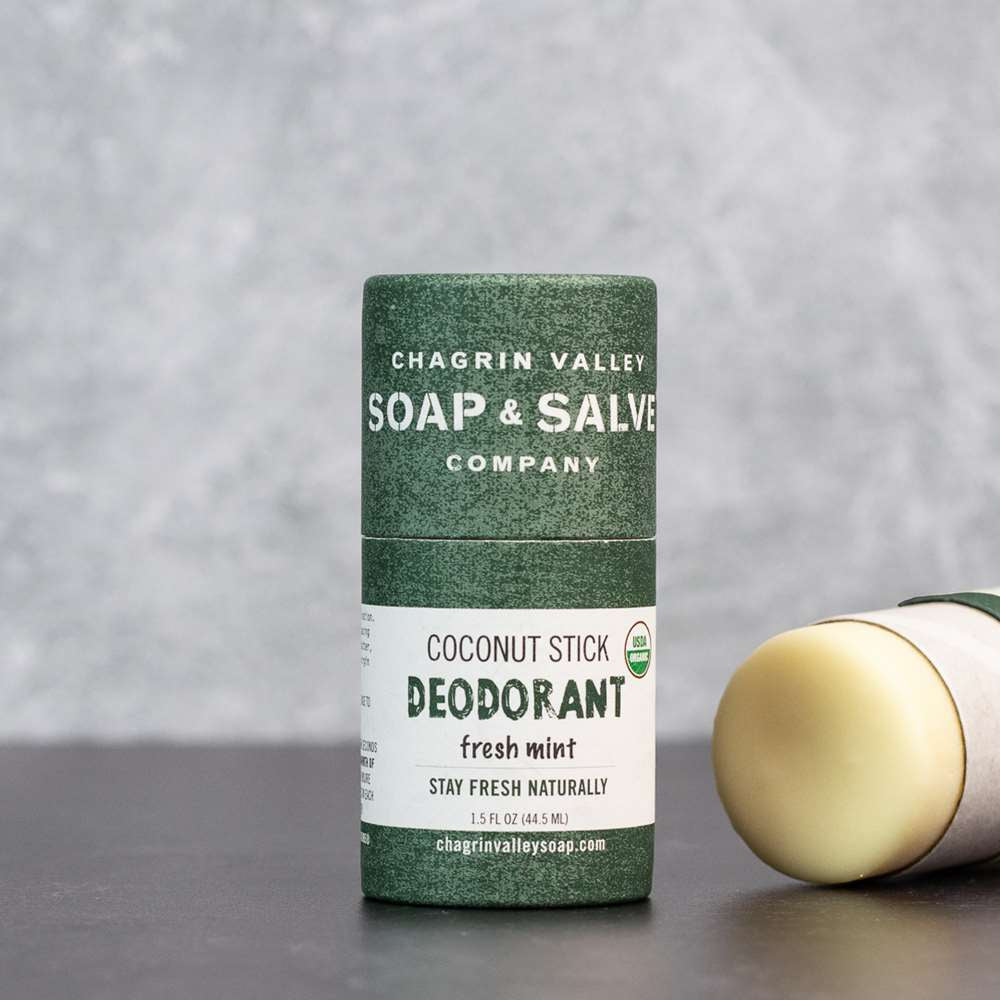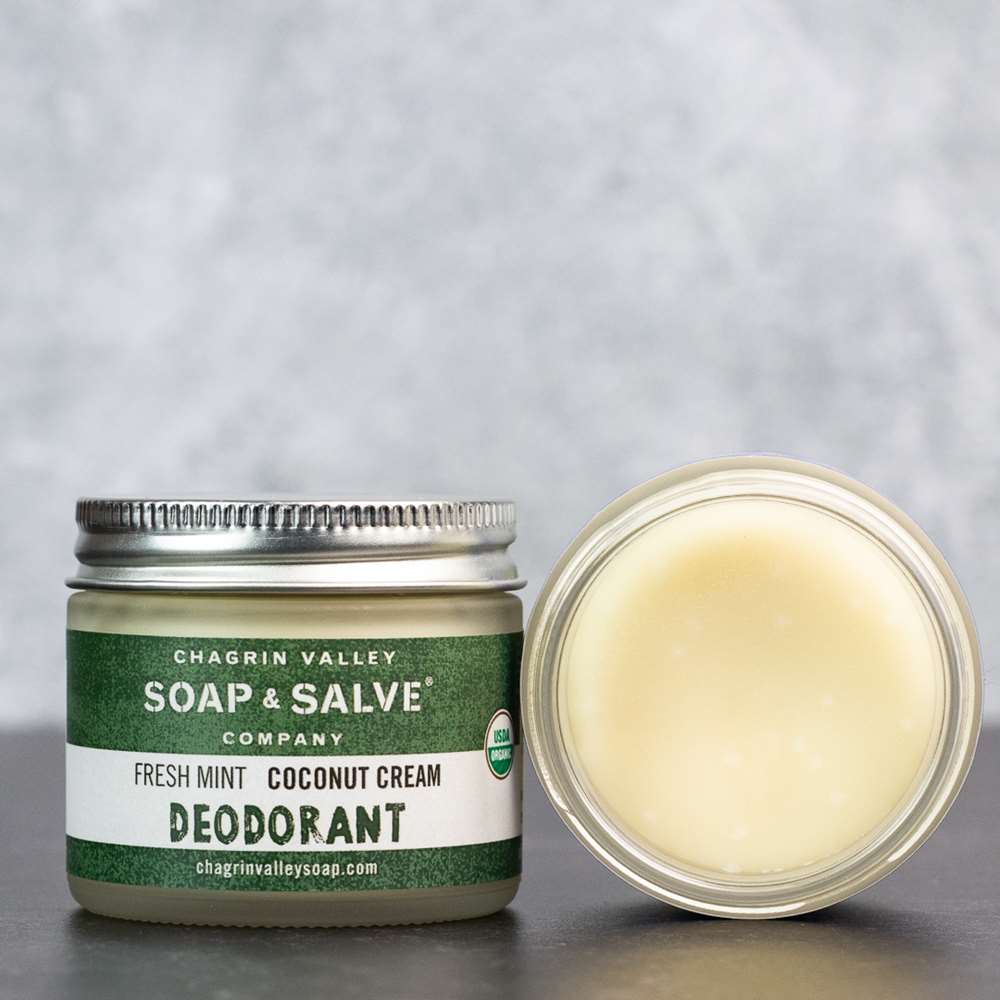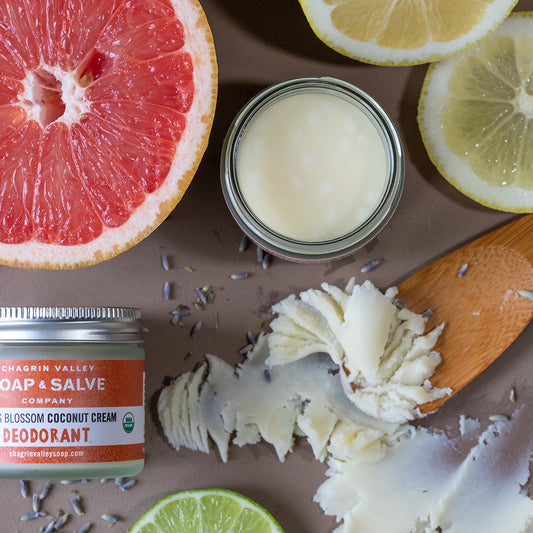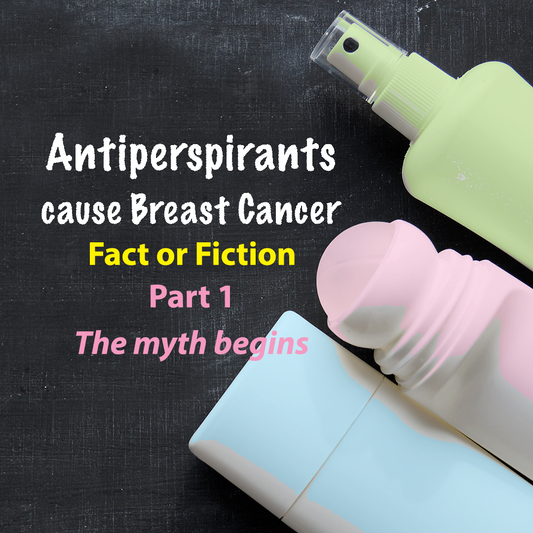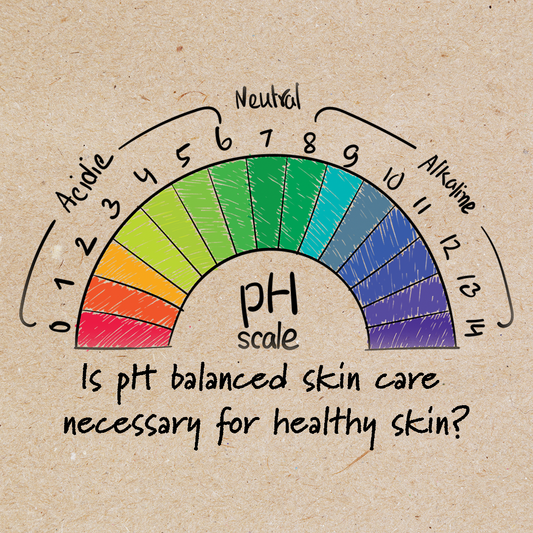The Science of Sweat, Deodorant & Antiperspirant
Our skin contains millions of glands and some produce sweat. Every day we produce on average one quart of sweat and we have between 25,000 and 50,000 sweat glands in our armpits alone.
You may be surprised to lean that sweat itself does not smell. However, when bacteria on your skin mix with your sweat, it causes an odor. Body odor is a result of the type of bacteria on your skin and how that bacteria interacts with sweat, not the sweat itself.
Sweating is the secretion of fluids by sweat glands onto your skin’s surface. A gland is an organ which produces and releases substances that perform a specific function in the body.
There are two types of glands. Endocrine glands release the substances that they make, like hormones, directly into the bloodstream. The other type of gland called an exocrine gland release substances like sweat, oil, or breast milk into ducts that pass out of the body. So, sweat glands are a type of exocrine gland.
There are two types of sweat glands: eccrine and apocrine. Apocrine glands are responsible for producing body odor.
 Eccrine Glands Help Regulate Body Temperature
Eccrine Glands Help Regulate Body Temperature
The majority of sweat glands, eccrine glands, are found over most of the body and open directly onto the surface of the skin. This means they are not associated with hair follicles.
The “sweat” from these glands is composed mainly of water, salt and trace amounts of other electrolytes that help regulate the balance of fluids in your body.
Sweat produced by these glands does not contribute to body odor.
The main role of eccrine glands is to assist in body temperature regulation. Sweating is controlled by the hypothalamus of the brain which receives messages from temperature receptors in the skin.
When your body temperature rises the eccrine glands are stimulated to secrete fluid onto the surface of your skin. As the sweat evaporates body temperature is cooled.
 Apocrine Glands Are Responsible For Body Odor
Apocrine Glands Are Responsible For Body Odor
The second type of sweat glands, apocrine glands, are found in areas with lots of hair follicles like the scalp, armpits, and groin.
Notice in the drawing from the Mayo Clinic that unlike the eccrine glands which open directly onto the skin, the apocrine glands open into the hair follicle just before it opens onto the skin surface. Hair follicles are the tube-like structure that keeps your hair in your skin. Men have larger sweat glands and generally produce more sweat than women.
Apocrine glands produce a thicker, fatty sweat that also contains proteins, lipids sugars, and ammonia.
Contrary to popular belief, fatty sweat is almost entirely odorless. However, these fatty secretions are quickly inhabited by normal bacteria, the natural microbiome, that thrive in the warm humid environment under the arms. Underarm odor is the result of the bacterial breakdown of sweat.
The major bacteria that colonize the skin and cause body odor are similar in all humans, however, the composition of the bacteria varies from one person to another. The composition of the microbiome will also vary based on location on the same person. Studies have even shown that bacterial flora of the right armpit can be vastly different from the left. We are that unique!
There are many factors, including genetics, gender, age and diet that can influence body odor. It has been suggested that, similar to a fingerprint, the body odor of every individual is unique.
Apocrine glands do not start working until puberty, which is why young children usually have little body odor from sweat.
Louis Leakey, an anthropologist, believed that the original function of body odor was to make humans unappetizing to animals who wanted to eat us for dinner.
Our Natural Deodorants Are Not Antiperspirants.
What's The Difference?
The basic difference is that antiperspirants keep you from sweating and deodorants help decrease odor when you sweat. Even though they are often combined into a single product, antiperspirants and deodorants function very differently when applied to the skin.
What Is Deodorant?
 There are one million bacteria per square inch on your armpits.
There are one million bacteria per square inch on your armpits.
As the apocrine glands release their sweet, protein, fatty secretions, the bacteria begin to feast and produce smelly chemicals.
Deodorants are used to mask odor or eliminate the bacteria that cause odor.
Deodorants work by neutralizing the smell of perspiration or creating an environment unappealing to bacteria.
Although triclosan, a germ-killing ingredient was banned from hand and body washes in 2016, it is still remains an ingredient is some deodorants. Commercial deodorants contain other potentially harsh ingredients such as parabens, propylene glycol, alcohols, and a whole host of synthetic colors, fragrances, and other chemicals that can cause irritation.
A good natural deodorant is usually made with simple ingredients from nature:
- natural oils or other ingredients with antimicrobial properties
- soothing natural moisturizers
- botanical powders or clays to absorb moisture
- baking soda that increases the pH of sweat, making it less hospitable to odor-causing bacteria
- essential oils that smell good and have antibacterial properties
What Is Antiperspirant?
 Unlike deodorants, antiperspirants actually keep you from sweating.
Unlike deodorants, antiperspirants actually keep you from sweating.
Antiperspirants actually inhibit sweat. They work to block sweat ducts and prevent sweating, while deodorants work to eliminate odor.
When an antiperspirant is applied to the underarm skin, strong astringents such as aluminum salts dissolve in the sweat on the skin surface of the armpit and enter your body through the sweat pores.
The dissolved substance forms a gel, which creates a small temporary ‘plug’ that prevents the release of sweat. Without any sweat, bacteria have nothing to break down...so there is no odor.
The commonly used active ingredients are aluminum-based compounds like aluminum chloride, aluminum chlorohydrate, and aluminum zirconium.
Do "Natural" Antiperspirants Exist?
You may find websites that claim to make "natural antiperspirant." The problem is that Antiperspirants are classified as Over-The-Counter (OTC) drugs by the FDA because they interfere with a bodily function, sweat formation.
At this time"aluminum" is the only FDA-approved antiperspirant ingredient on the market. Since aluminum cannot be an added ingredient in a "natural" product, there is technically no such thing as a natural antiperspirant.
That being said, while a true natural antiperspirant that "prevents" sweating may not exist, natural deodorants, like those at Chagrin Valley, contain ingredients like arrowroot powder, cornstarch, or baking soda which have moisture-absorbing properties that can help make you feel dryer.
Are Commercial Deodorants and Antiperspirants Safe?
The safety of antiperspirants and commercial deodorants has become quite a debate.
There are numerous internet sources that state since antiperspirants block sweat glands, they lead to a "build-up of toxins" in the body. This statement is not true and perfect example of internet hype.
Not only is underarm sweat a very small proportion of the total sweat we lose each day through the skin, but we also excrete very little "toxin" through our sweat. Toxins are released mainly through the liver and kidneys.
There are also allegations that antiperspirants cause Breast Cancer. There is a lot of research that debunks this allegation, so much so that I devoted four blogs to the subject.
Learn More Blog: "Do Antiperspirants Cause Breast Cancer."

Some studies indicate potential health risks associated with aluminum compounds found in many antiperspirants.
For example, it is possible that the aluminum accumulates in the brain and contributes to Alzheimer’s disease. The problem is that there are so many other sources of aluminum in our daily lives. Not only is aluminum the third most abundant element on the earth, it is found in our food, drinking water, cookware and many products we use every day. We simply need more research!
Of course there is always the debate between natural ingredients vs synthetic ingredients.
What concerns me about commercial deodorants is the same thing that concerns me about most commercial products, the synthetic chemicals like preservatives, colors, fragrances, and other additives.
Deodorant is applied to the skin and remains all day. We just don't know what long-term effects of years of daily use may exist for these synthetic ingredients. I simply like to feel good about what I put on my skin!
I do believe that natural is better! Read "Why Use A Natural Deodorant."
I hope that learning about the Science of Sweat and the how and why perspiration occurs, provides an understanding that a little sweat is normal and a good thing.
Understanding how our bodies work can guide us to make better choices in protecting against body odor without adding unnecessary and questionable ingredients.
